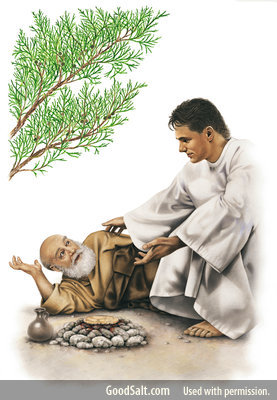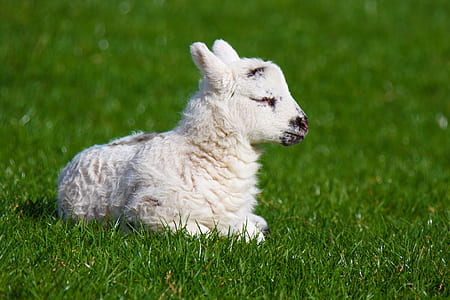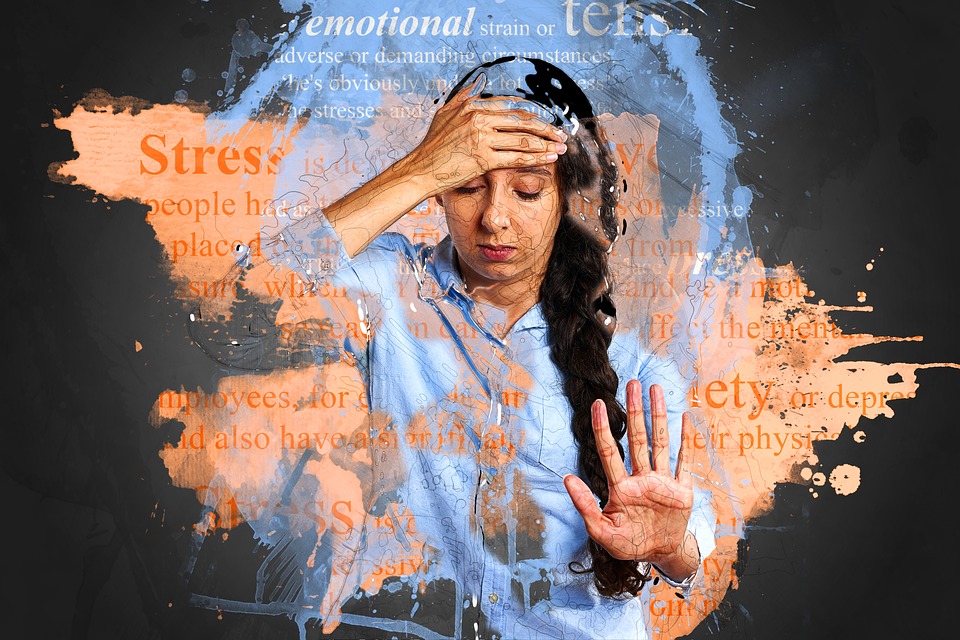“Then as he lay and slept under a broom tree, suddenly an angel touched him, and said to him, ‘Arise and eat.’” I Kings 19:5
We are learning from the prophet Elijah how to climb out of the pit of discouragement. Elijah had quickly descended from the mountaintop of victory on Mt. Carmel into the bottom of the pit of discouragement after he encountered resistance from wicked Queen Jezebel (I Kings 18:20-19:2).
Like Elijah, we can climb out of the pit of discouragement when we…
– Focus on the facts, not our feelings (I Kings 19:1-4a).
– Don’t compare ourselves with others (I Kings 19:4b).
The next step to take toward climbing out of the pit of discouragement is to TAKE CARE OF OUR PHYSICAL NEEDS (I Kings 19:5-7a). How did God respond to Elijah’s discouragement? Did He slay him under the tree? Did He scold him for being cowardly? Did He lead him in a Bible study or quote verses to him? Did He say, “Snap out of it Elijah! Just pull yourself together?” Did the Lord rebuke any evil spirits? No. God did not do any of these things. What did the Lord do?
We read, “5 Then as he lay and slept under a broom tree, suddenly an angel touched him, and said to him, ‘Arise and eat.’ 6 Then he looked, and there by his head was a cake baked on coals, and a jar of water. So he ate and drank, and lay down again. And the angel of the Lord came back the second time, and touched him, and said, ‘Arise and eat.’” (I Kings 19:5-7a). God let Elijah sleep and then provided a meal for him, not once, but twice. Think how much God’s prophet must have needed this! He had just faced off with 450 prophets of Baal (the male god) and perhaps 400 prophets of Asherah (the female goddess) on Mt. Carmel and eventually executed them all (I Kings 18:19, 22, 40)! He also ran from Mt. Carmel to the entrance of Jezreel (I Kings 18:46) which would have been about twenty-five miles! This would have left Elijah physically and emotionally exhausted.
Notice how tenderly God dealt with Elijah. The Lord knew what His servant needed. He did not put him down or condemn him; all God did was give him food and rest. God restored him physically. The Lord took care of Elijah’s physical needs. Even though God used His prophet in supernatural ways, he was still human and needed to sleep and eat after such an exhausting encounter on Mt. Carmel.
When we are physically and emotionally exhausted, we are more prone to discouragement. Mole hills can easily become mountains in our eyes when we are fatigued. During these times it is important to be aware of our physical and emotional needs. Maybe we need to watch our diet or we need to get more sleep or exercise. Our physical health has a profound impact on our moods.
The average person needs about seven to nine hours of sleep a night. 1 We need time to dream in order to maintain our mental health. Adults dream twenty minutes out of every ninety minutes of sleep, but they don’t remember them unless they wake up during the dream. Three nights without dreaming will cause most people to get discouraged. Dreams are God’s way of allowing us to vent our unconscious feelings and conflicts. 2 People who are properly rested are less likely to be overcome by discouragement.
When was the last time you had uninterrupted solitude with the Lord? Your main goal was to rest in the Lord’s presence? Sometimes getting away to rest in the Lord is the most spiritual thing a Christian can do, especially if you are emotionally, physically, and spiritually exhausted.
Tony Evans writes, “Sometimes, the most spiritual thing you can do is get some sleep. We need the reminder that we are created beings; we’re not God. The fact that we need rest is a reminder that we are dependent on the one who ‘does not slumber or sleep’ (Ps 121:4).” 3
Prayer: Precious heavenly Father, sometimes we can become so focused on serving You that we forget to pay attention to our own physical and emotional needs. When You use us in supernatural ways, we can forget that we are still human and neglect our most basic needs. Thank You for reminding us that You do not need to sleep, but we do. You know our needs far better than we do. Please help us to be aware of our basic needs and care for them because You care for us. In Jesus’ name we pray. Amen.
ENDNOTES:
1. Retrieved on August 5, 2021 from Eric Sunl’s article updated March 10, 2021, entitled, “How Much Sleep Do We Really Need?” at sleepfoundation.org.
2. Adapted from my Introduction to Psychology and Counseling: Christian Perspectives class taught by Drs. Frank Minirth and Paul Meier at Dallas Theological Seminary, 1983-1984.
3. Tony Evans, CSB Bibles by Holman. The Tony Evans Bible Commentary (B & H Publishing Group, Kindle Edition, 2019), pg. 1599.



